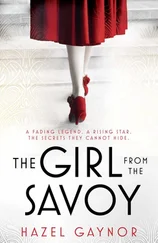I just wanted to tell you that it gets better, that you’ll be alright. Maybe not right away and maybe not all the time or all at once, but you’ll move past this and be stronger for it. I remember how angry it made me to see and hear all the lies reported about me, all the lies about what happened, and even lies about Roman. It’s hard to believe that so much of what you see and hear in the media can be untrue, but it is. I wondered why people with nothing at stake in it had such strong opinions and feelings about it. I felt used by the media, people making a living off of my misfortune.
It can be confusing, you know that it is not your fault, yet you may blame yourself for putting yourself in the wrong place at the wrong time. You know that the punishment those boys got, they deserved, but somehow you still feel bad to know that they are in jail. I have tried to find a balance. Knowing that the blame is not on me, it is on my rapist in a way made me feel somehow powerless. So I also can look back and realize while I made some unwise decisions that day, I shouldn’t feel guilty or to blame. I feel less like a victim that way. That’s just me though; you will find a way to fit all this awfulness somewhere in your life and get past it.
In the end, you are not a victim, you are a survivor. You are one of many and you are in very good company. Shame and embarrassment keep people from talking about these things; they let this kind of abuse hide in the shadows. You should know that your story shined a light on something people needed to see and talk about. Someone has learned something and didn’t victimize someone else because of the publicity you have endured. And, for everything your family has been through, surely some good has come, to someone, somewhere, when another person perhaps hesitated and did not hurt someone else.
Mostly, I just wanted you to know that you are not alone. As this fades away to a memory of longer and longer ago, you are not alone. We survivors are many, and we are strong. Most important we are all around you and we all understand.
I hope that your future brings you many wonderful things; you don’t have to let this drag you down. It will get better, and you will be okay.
Sincerely, Samantha Geimer
This book almost never happened. I was never moved to tell my whole story; I just wanted the story to go away. It wasn’t that I hadn’t thought about it. There were regular inquiries and offers going back to 1977. And there were times I was tempted. It would have been nice to have the money, and it would have been nice to have a pulpit to set the record straight. The controversy that’s come in waves over the thirty-plus years of this story has caused enormous hurt and anxiety to me, and worse, to my family. To call more attention to us by writing a book about it was too painful to me and too abusive to the ones I love.
But then came Marina’s documentary Wanted and Desired . The way she laid it out so simply and perfectly gave us a way to understand it all. Finally we could say, “That is it, that is the way it really happened.” And after Polanski’s arrest and the ensuing nightmare, my sons started seeing it in a different way. As boys, they may have been embarrassed by the attention; now as men, they were angry. They pretty much joined the rest of my family in now saying, “Okay, go get ’em.” I was ready, too.
Every time I looked at an article or news feature or story about Samantha Geimer, I met a different person. There was Samantha the slut who used her charms to entice poor Roman Polanski into her web of perversion. There was the abused Samantha whose mother’s ambitions were advanced by serving up her nubile daughter to the powerful director. There was Samantha the self-hating victim who apologized for herself and couldn’t find anything wrong with her assailant. And there was Samantha the weak victim. I was never in front of the story; I was always reacting to the portrayal of one of these Samanthas.

Most of what my family, dear, brilliant, essential Larry, and I worked for in and out of court all these years was geared toward having privacy. Unfortunately, all these false Samanthas still leaked out. I was ready now to come out. Come out as myself.
The discipline of reliving the years—sometimes frustrating, sometimes sad—brought new insights, new understanding, particularly in terms of a greater understanding of Roman Polanski himself. As different as our lives have been, we do share a common sense of battle fatigue when it comes to the court system and the media. We’ve both been punished. We both want to move on.
We both might be considered victims. I can’t speak for Roman; me… no thanks. The word victim comes from the Latin word meaning the person or animal sacrificed for some religious purpose. Over time it’s developed to mean a person who suffers from an accident or incident that leaves them injured and compromised in some way. I imagine it must be terrible to be a victim.
I tell you this for one reason. It reminds me of one of the guiding principles of my life—one I wish I could share with all those who have called me a “weak victim.” If you go through your life carrying hate in your heart, you really only hurt yourself. I didn’t forgive him for him; I did it for me. Forgiveness is not a sign of weakness. It’s a sign of strength.
AFTERWORD
by Lawrence Silver
Thirty-Five Years
Being Samantha Geimer’s lawyer has been an interesting and rewarding challenge. When I started representing her, she was thirteen years old, and my mission was simple and clear: to keep her identity as a rape victim as confidential as possible. Samantha’s parents believed anonymity was essential to her mental health, and that she must be allowed to lead a life as unaffected as possible by Polanski’s criminal acts. That goal might have been realistic had the case ended in 1978. Even with Polanski’s celebrity, the intense interest in Samantha likely would have totally faded. But that goal was never truly achievable once Polanski, quite understandably, fled the country after Judge Rittenband yielded to media pressure and reneged on the sentencing agreement. That flight gave the case (so to speak) legs. It led to thirty-five years of focus on Samantha and thirty-five years of my trying to protect her. At the outset, Samantha’s family was not interested in pursuing Polanski in any civil litigation because, among other reasons, that would have meant revealing her identity. No amount of money from Polanski was worth that price.
But things changed. Polanski published a memoir in which he not only defended his illegal behavior, he sought to profit from it. Also, Samantha grew older and, although she still wanted to avoid attention, stronger. These factors contributed to the decision to proceed with the suit. While there were risks of disclosure, we could have the matter referred to a private judge and bring the action using an anonymous name, Jane Doe.
My role in this book has been quite limited. This is Samantha’s story, but from just after the rape until now, I have been along for the journey. I have provided Samantha with information about the legal events, and helped jog her memory, especially of the early years. Remember, Samantha’s recollection of those events, events still unsettling to contemplate, was that of a thirteen- or fourteen-year-old child.
Two items relating to the litigation were not discussed in Samantha’s book and would, I think, be particularly interesting to those who’ve followed the case.
First, the photographs taken by Polanski on the day of the crime; and second, the recent amendment to the California Constitution which provides a victim of criminal activity with certain rights.
Читать дальше













